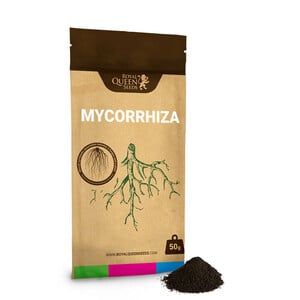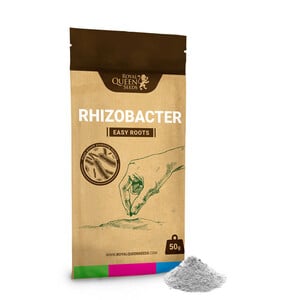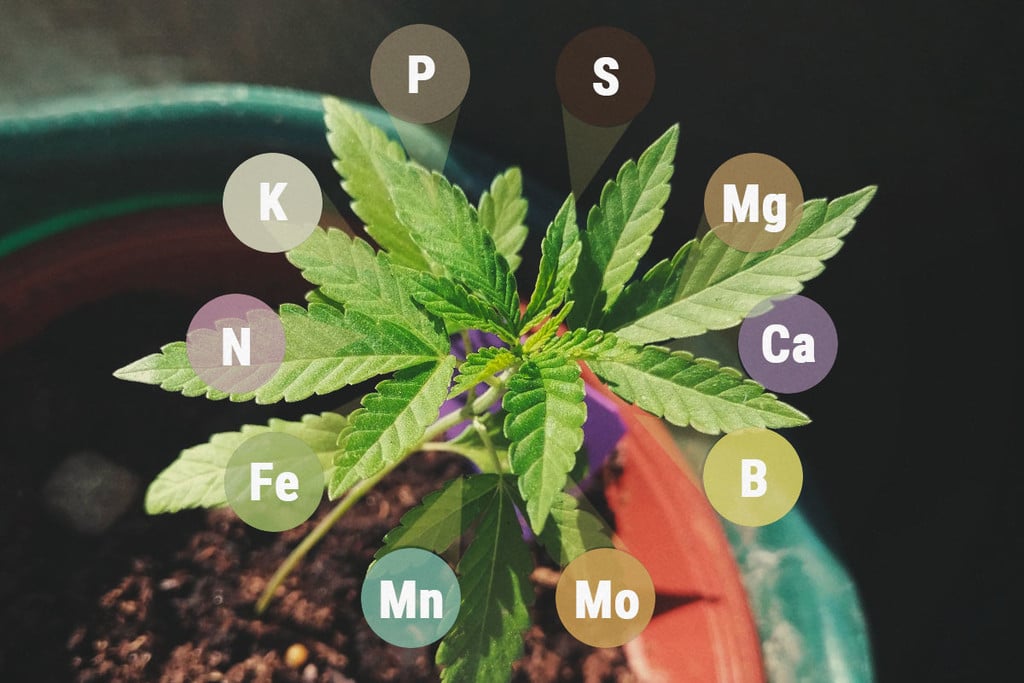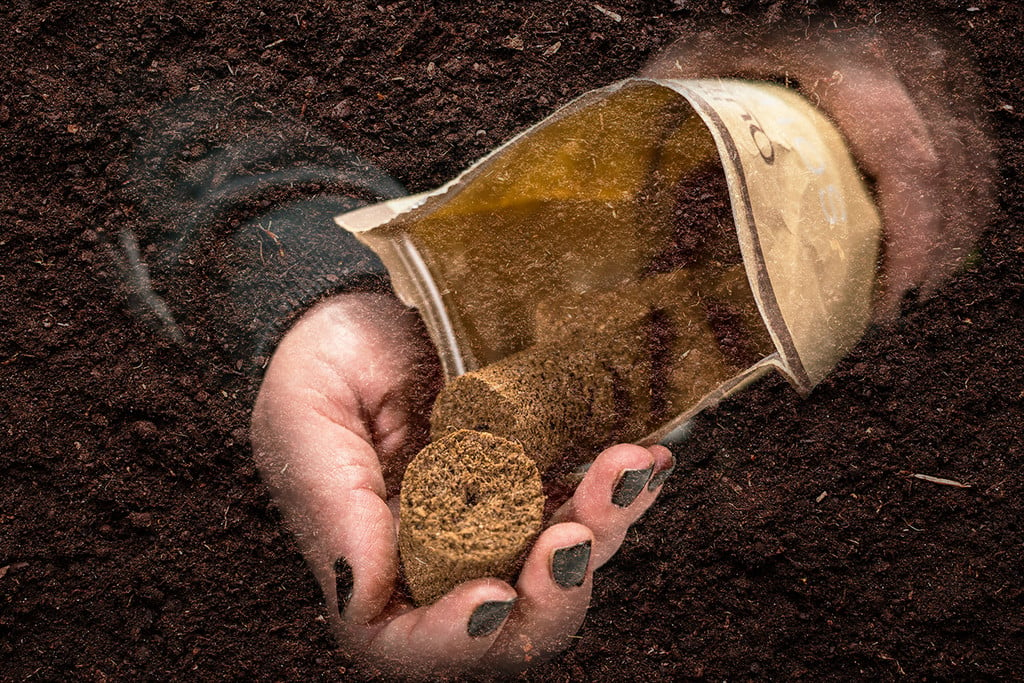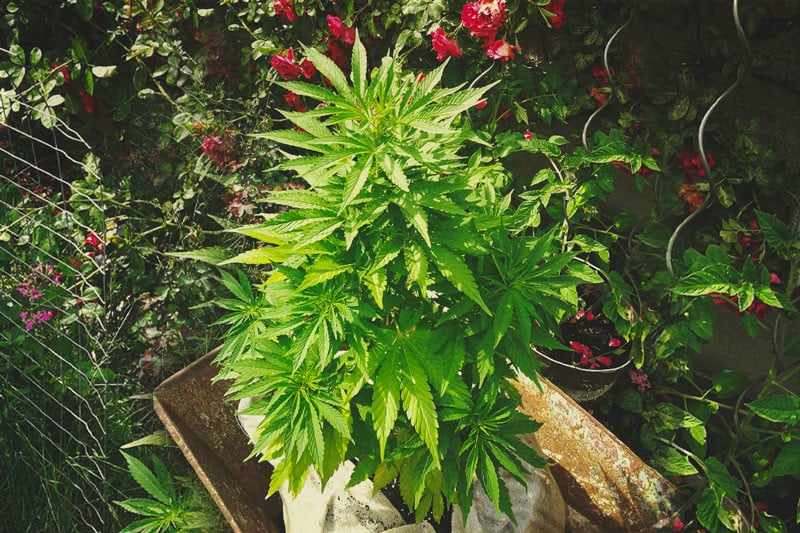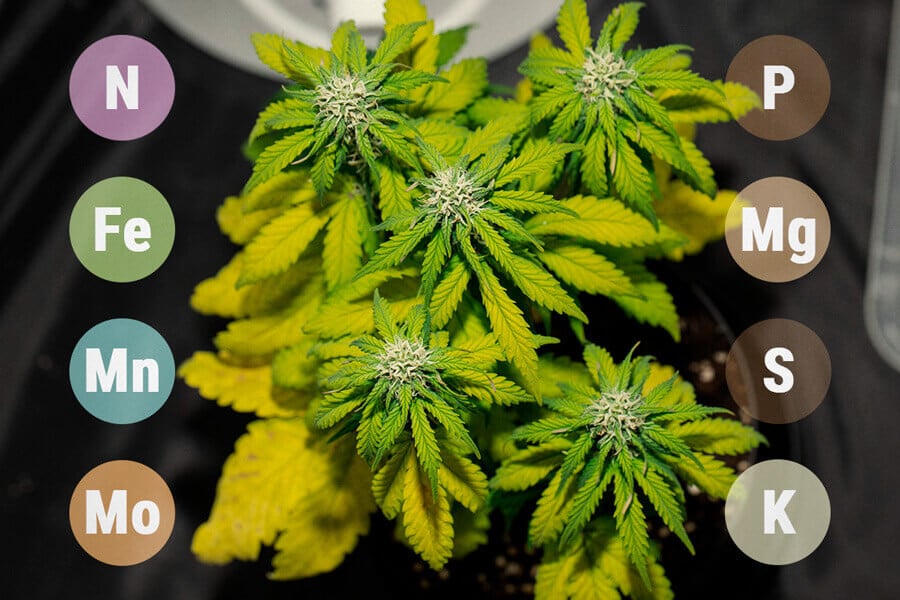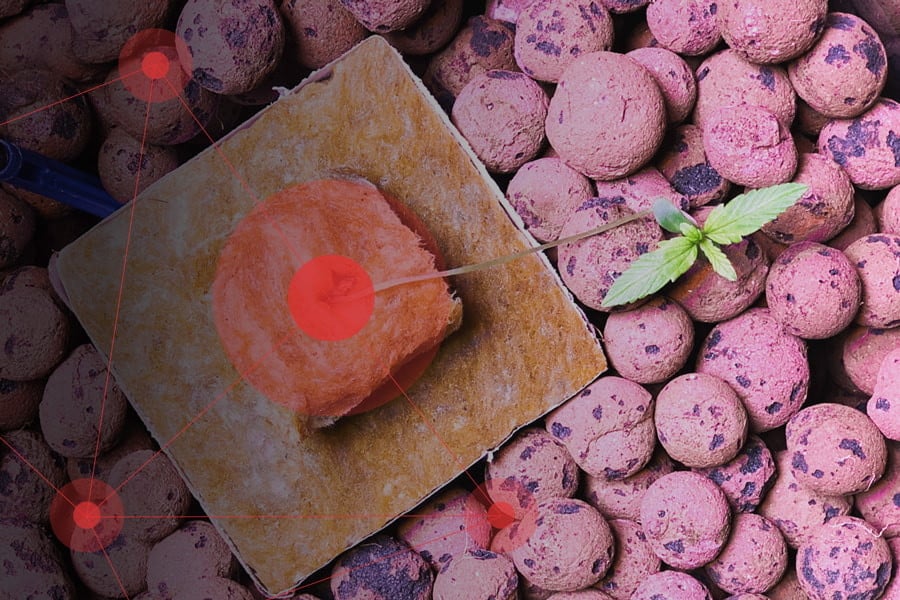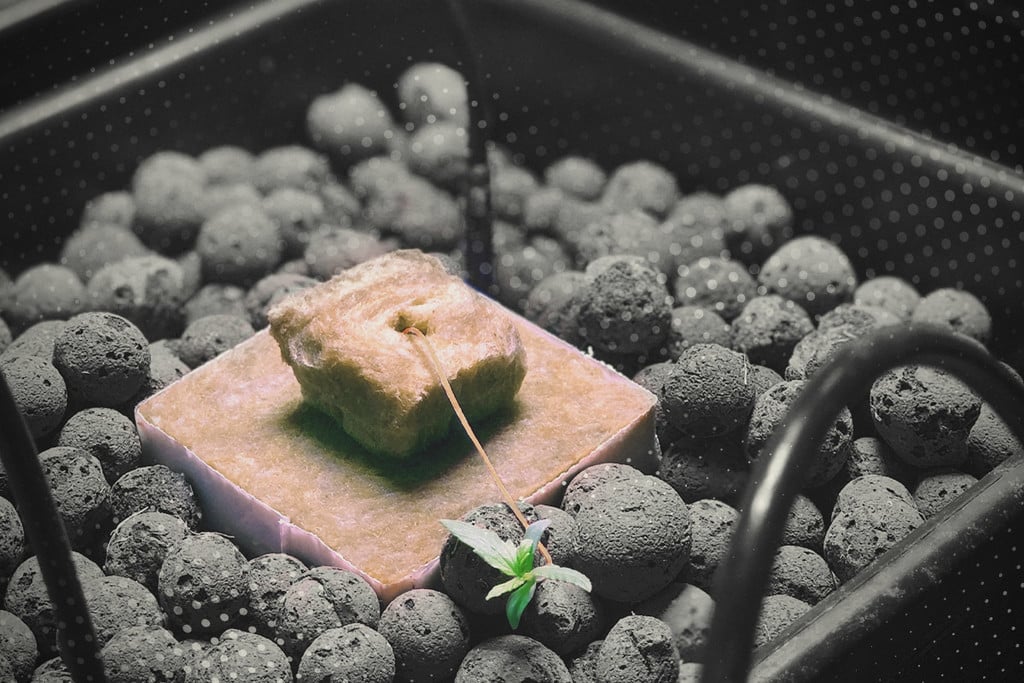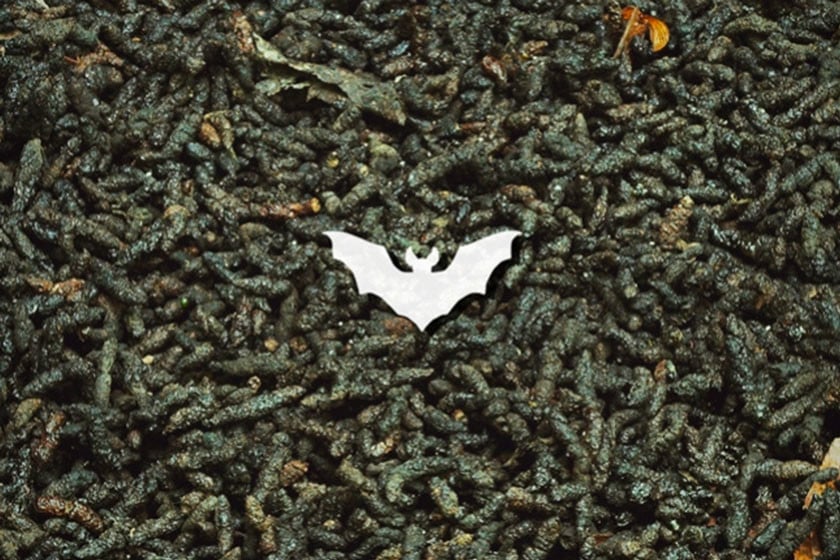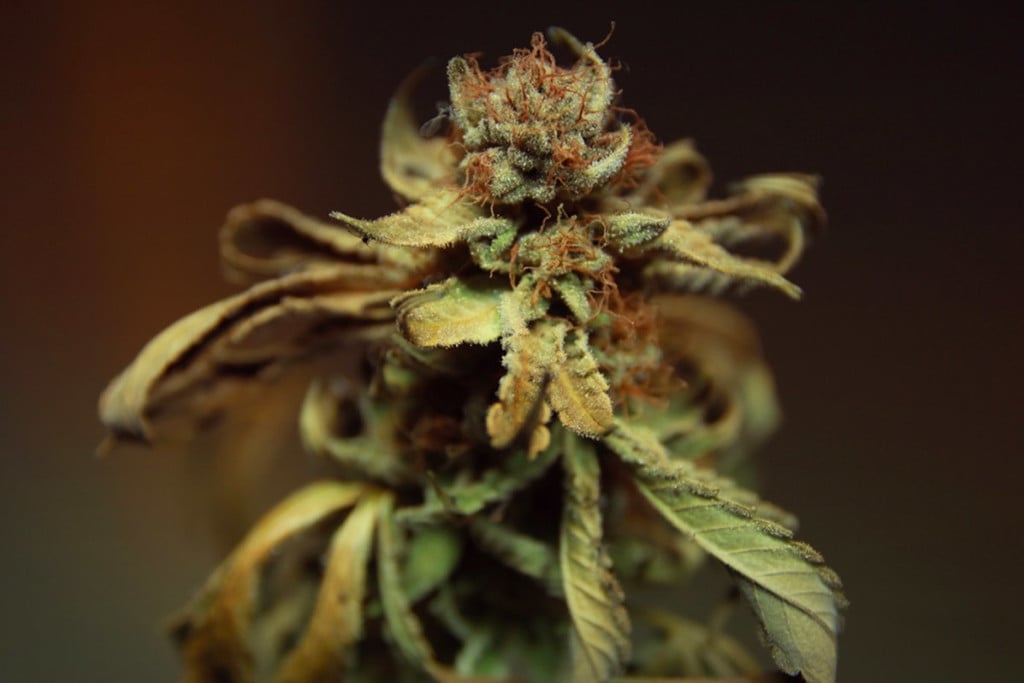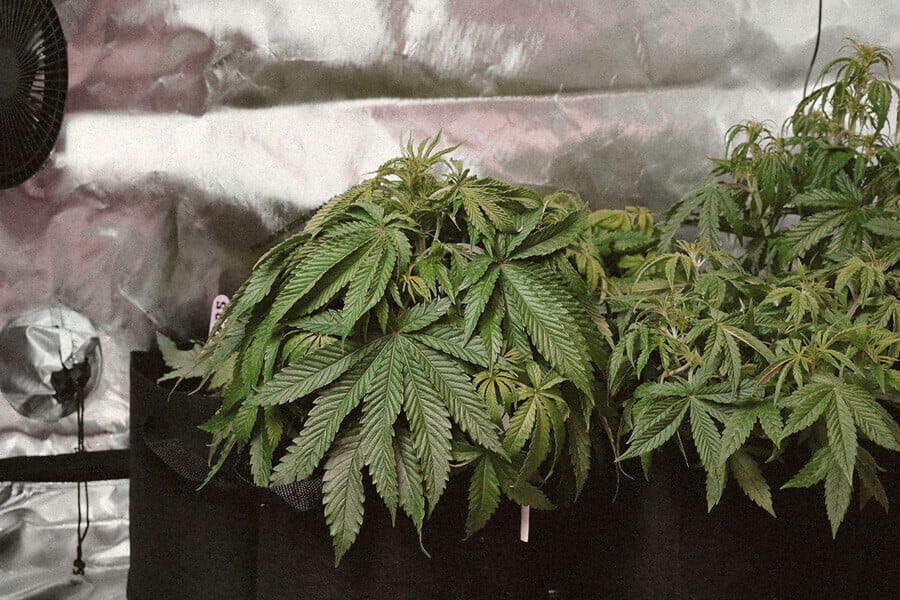.

Why Soil Microbes Are Vital Within Your Cannabis Garden
Soil microbes are various different types of miniature creatures that live within the soil. Some of these creatures can form mutually beneficial relationships with plants that help to protect and boost their health. There is definitely an important place for these life forms within all cannabis gardens.
Contents:
- Plants and microbes: a symbiotic alliance
- Nutrient uptake
- How the bond is made
- Mycorrhizae
- Beneficial bacteria: rhizobacter
- Root defence
- Types of nematodes
- Predatory nematodes
- Introducing nematodes
- Enhancing microbiology within your soil
- Create and apply compost
- Use compost teas
- No-till
- Avoid pesticide use
The term microbe is used to describe microscopic organisms that cannot be seen by the naked eye, such as forms of bacteria, viruses, and fungi. When it comes to soil and plant health, it appears microbes are absolutely key. Us humans sometimes like to take an isolationist approach to things, separating parts of nature from one another in order to obtain a greater understanding of their functions and characteristics.
However, in doing so, we often underestimate just how connected the web of life really is, and how organisms depend on each other and sometimes form vital symbiotic relationships to assist in one another’s survival.
This kind of symbiotic relationship very much exists within the soil between microorganisms and plants, and such interconnectedness can be utilised by cannabis growers in order to build healthy soils and to grow plants full of vitality.
This quote by soil microbiologist and soil biology researcher Dr. Elaine Ingham details the importance of healthy soils teeming with microorganisms, “If we want clean water, we have to get the biology back in our soils. If we want to grow and harvest crops, we have to build soil and fertility with time, not destroy it. The only way to reach these endpoints is to improve the life in the soil”.
Plants and microbes: a symbiotic alliance
Although plants don’t have brains and, as far as we know (although we could be wrong), are not conscious, they do have chemical mechanisms that allow them to alter and shape their external environment, with a lot of this magic occuring within the soil. Sometimes, soil is seen as a mere source of nutrients for the plants that inhabit it, but it's actually been discovered that it is a complex and mind-blowing ecosystem buzzing with microbial life.
Plants and microbes aren’t just minding their own business within the soil environment, they actively interact and even work together to make life slightly easier and boost the chances of survival. Microbial activity can enhance the growth of plants by way of various mechanisms, including changing hormonal signalling, repelling or outcompeting pathogenic microbes, and boosting the bioavailability of nutrients.
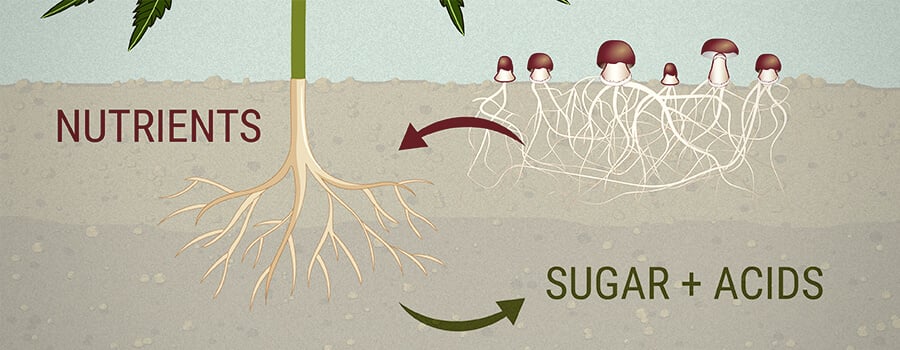
Nutrient uptake
All of these mechanisms are advantages to cannabis growers, especially those who are raising their crop outdoors where conditions are harsher and biodiversity is much, much greater. Most cannabis growers will be aware of the nutrients nitrogen, phosphorus, and potassium (NPK)—the three macronutrients required by plants in order to ensure healthy and proper growth.
Soil microbes can be of great assistance to plants in helping free up nutrients within soil to make them easier to absorb. Soil microbes can metabolise locked-up nutrients such as NPK, which are bound within inorganic molecules, and make them more available for plants to utilise.
Various microbes within the soil, such as some bacteria and fungi, have the ability to break down these forms of nutrients, and in doing so, release them into a form that plants can benefit from. It has been reported that these microbial allies are key drivers of plant growth within natural settings. It’s clear that both the indoor and outdoor cannabis grower could benefit massively from microbes within their soil.
How the bond is made
This relationship is by no means all give and no take. The plants benefit from more access to vital nutrients, but the microbes also receive something in return. Plant roots release a variety of substances into the soil, called exudates. Some of these exudates include sugars, amino acids, and organic acids, which microbes can use as a source of nutrition.
These exudates effectively contribute to the establishment of the microbiome of roots. These nutrients may also attract pathogenic microbes, but some beneficial microbes even have defence mechanisms against these to offer in return.
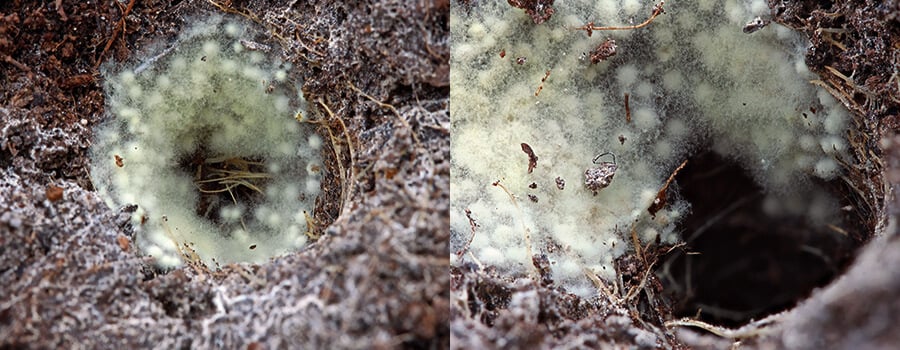
Mycorrhizae
Perhaps the most interesting of all of the plant/microbe alliances is that of plants with fungi. A type of fungi, known as mycorrhizal fungi, are known to bind with plant roots. The underground portion of fungi, which can be seen as roots, are called mycelium. The mycelium of mycorrhizal fungi act as extensions of a plant’s roots, allowing it to absorb nutrients from a larger area than it could cover with its roots acting alone.
Mycorrhizal fungi form this alliance with plants by surviving off of sugary plant exudates. In return, the fungi provide additional moisture and nutrients gathered from the soil via the mycelium.
Mycorrhizal fungi are found in two primary types; ectomycorrhizae live on the outside of roots as sheaths, whereas endomycorrhizae actually live within the plant itself. As a cannabis grower looking to utilise the power of fungi to boost the nutrient uptake in your plants, you should be aware that the addition of excess fertilisers and the use of fungicides can damage and reduce the effectiveness of these organisms.
Beneficial Bacteria: Rhizobacter
Several species of bacteria are also an important component of the soil food web. Not only do they play a key role in the food chain and the recycling on nutrients, but they also interact directly with plant roots to provide impressive benefits.
Easy Roots Rhizobacter introduces numerous species of such beneficial bacteria and algae into the growing medium. They help plants uptake nutrients and fend off pathogens. The bacterial species produce growth promoters that play important roles in fixing nitrogen from the atmosphere and making key nutrients available to cannabis plants.
These microscopic guys also help decompose organic matter and liberate nutrients that plants can then absorb easily. What’s more, after living a purposeful life of batting away bad microbes and freeing up nutrients, these little fellas die and release even more plant-nourishing goodness into the root zone.
The algal component of the mix helps maintain the health of the good bacteria. These organisms protect bacteria from fertiliser irritation and pH fluctuation while supplying plants with 60 key trace elements required for optimal physiological function.
Root defence
Mycorrhizal fungi go above and beyond their ability to provide plants with additional nutrition. They can also act to protect plants against types of nematodes. Nematodes are microscopic worm-like creatures, with thousands of them occupying only a handful of soil. There are over 20,000 documented nematode species, making them the most numerically abundant animals on Earth.
Some nematodes may be beneficial to your cannabis plants, which we will explore later on. However, some of them can be rather detrimental. Plant-parasitic nematodes will feed on the roots of your cannabis plants, affecting their health and growing potential.
Types of nematodes
Ectoparasitic nematodes are known to live within the rhizosphere (the zone of soil surrounding plant roots), where they feed upon the outer cells of roots. Endoparasitic nematodes actually enter the root itself to feed. These types of nematodes are known to cause damage to agricultural crops.
Fungal mycelium are made up of tiny separate strands known as hyphae. These small strands are known to be able to trap root-eating nematodes and help to prevent them from attacking the root systems of plants.
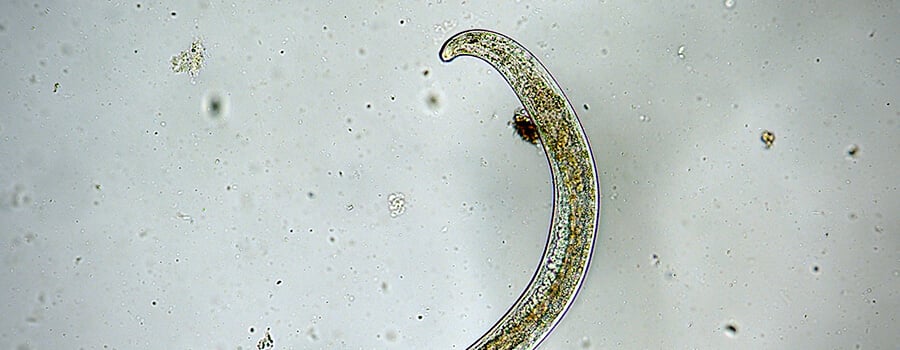
Predatory nematodes
Not all nematodes are a threat to your cannabis crop. In fact, some types of nematodes, known as predatory nematodes, can act as security teams to your plants. Predatory nematodes feed on other rhizome-dwelling soil microorganisms, including those pesky and cannabis-root-munching plant-parasitic nematodes. Not only this, but these beneficial nematodes also release nutrients in plant-available forms, so in a way, they also help to keep a grower’s plants well-fed and healthy.
Most predatory nematodes belong to four different taxonomic groups. Mononchid nematodes possess an oral cavity which is often equipped with either a single tooth, numerous large teeth, several small grasping teeth, or all of these, which they use to puncture their prey. Dorylaimid nematodes possess what is known as a odontostyle, which can be described as a needle-like tooth. They use this to take down and feed upon prey organisms, and in doing so, help to minimise numbers of cannabis munchers within the rhizosphere.
There are two other types of predatory nematodes. Diplogasterid nematodes have been found to possess smaller oral cavities, also armed with teeth. They are generally found in large numbers, dwelling in decomposing organic manure with life cycles of between 8–15 days. Finally, aphelenchid nematodes possess a needle-like stylet that they utilise to penetrate prey nematodes and inject them with paralysing digestive enzymes. They then proceed to feast upon the contents of their prey’s body.
Introducing nematodes
Sure, these nematodes act in ferocious ways, but they certainly help to protect your cannabis plants against high numbers of undesirable residents within your soil.
When looking to introduce predatory nematodes into your cannabis garden, be sure to do so either in the late afternoon or evening; this will help to avoid exposing them to direct sunlight, which may kill them off. They should be stored in the fridge until the grower decides to apply them. The soil should be slightly wet before introducing them, and should be watered after application.
Add them directly under the plants you wish to protect, as opposed to throughout the entirety of the soil. The simplest way of applying nematodes is to mix them with the correct amount of water as displayed upon the instructions of the product you choose to use. This can then be sprinkled directly onto the soil.

Enhancing microbiology within your soil
There are various methods that cannabis growers can use to enhance the numbers of beneficial microbes within their soil to boost plant health and possibly even the quality and quantity of yield when harvest time comes round.
Create and apply compost
One way of doing this is to create and apply a high-quality compost. Composting is actually a process carried out by our microorganism allies. They work to break down organic material such as food waste, weeds, and other garden discards into high-quality and nutrient-rich soil.
Be sure to add good amounts of green material such as grass clipping, leaves, and fruits and vegetables to your compost, along with brown materials such as prunings, wood chips, and straw. Compost heaps need to be turned in order for air to access all parts of the heap to help break down the materials.
Adding this compost into your soil will help provide beneficial microbes and lots of health-giving nutrients. This can help cannabis growers cut back on or even cease adding synthetic products and fertilisers to their soil.
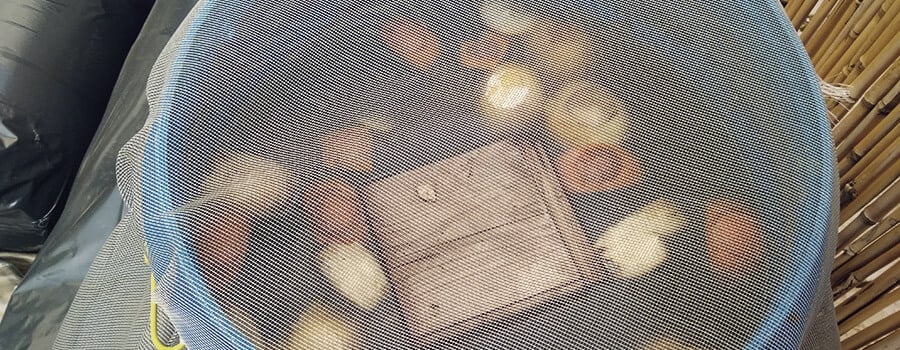
Use compost teas
Compost teas are an excellent and natural way to provide potent mixtures of essential nutrients to your cannabis crop. Compost teas can be made using a large variety of organic matter. These teas have been shown to boost the nutritional quality and even taste of vegetables, so who knows what it can achieve in terms of the quality of cannabis!
Starting material such as plant matter and worm castings are added to water, where they are brewed over a period of time. There is a split in whether aerobic (with oxygen) or anaerobic (without oxygen) brewing is more beneficial. However, aerobic-brewed tea that is created using a pump is said to increase the number of beneficial microbes. Once brewed, this tea can be poured around your target plants.
No-till
Tilling is an agricultural and gardening method that is used to prepare soil for future crops. However, this action has been shown to be detrimental to soil health, contribute to soil erosion, and release large amounts of carbon dioxide into an atmosphere already experiencing excess amounts of the gas. Tilling has also been associated with the loss of microbial life within soil.
The constant annual tilling of soil involves the turning of the topsoil (top 5 or so centimetres). When this occurs, the humus, soil rich in organic matter, is exposed to the elements, damaging the rich microbial life that inhabits it and disturbing natural processes.
No-till gardening simply refers to not disturbing this delicate habitat via tilling. This method can help to maintain the constant increase of organic matter in the soil as the years go by. This build-up ultimately leads to healthier soil and more nutritious plants.
Avoid pesticide use
Pesticides are often used in industrial agriculture and by non-organic growers as a chemical way to deal with unwanted pests. Though they may be effective in this sense, use of these chemicals has been shown to sustain massive negative effects upon human and environmental health. Pesticides are associated with various health conditions, and easily find their way into water systems where they can harm wildlife.
Not only do pesticides kill unwanted pests, but they also negatively affect beneficial soil microorganisms, and in doing so, halt or decrease the amazing work they do within soils. For example, nitrogen-fixing and phosphorus-solubilising microorganisms have been observed to become inactive in soils contaminated with pesticides.


























